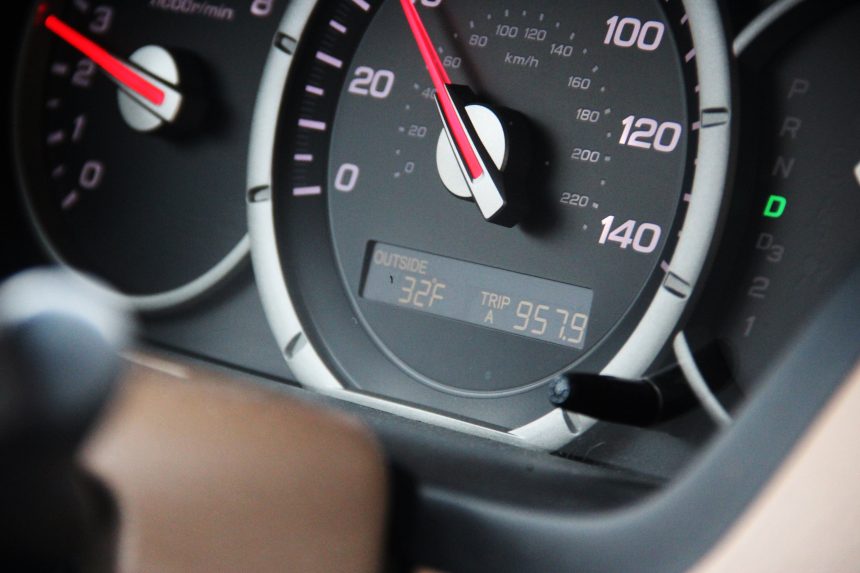The dreaded moment has arrived – your check engine light is blinking. You may be tempted to brush it off as a minor issue, but it’s crucial not to ignore it. A flashing check engine light is a warning sign that should be addressed immediately. By taking prompt action, you could potentially save yourself from significant time, energy, and costly repairs down the road. In this article, we will explore why check engine lights flash, the importance of addressing them promptly, common causes of engine misfires, signs of engine misfiring, and what you can do to resolve the issue.
The Importance of Check Engine Lights
While it may be tempting to ignore a flashing check engine light, doing so can lead to serious consequences. Driving with a compromised engine can cause severe damage to various engine components, potentially resulting in costly repairs such as a blown catalytic converter. Ignoring the warning signs may also cause irreversible damage to emissions-system parts like oxygen sensors. By addressing the issue promptly, you can avoid unnecessary long-term damage and save yourself thousands of dollars in repair costs.
Common Causes of Engine Misfires
A flashing check engine light is often an indicator of an engine misfire. An engine misfire occurs when a cylinder fails to provide the correct amount of power. Several factors can contribute to engine misfires, including ignition problems, fuel mixture imbalances, and low compression.
Ignition Problems
One common cause of engine misfires is ignition problems. Over time, ignition parts, such as spark plugs and ignition coils, can wear out and fail to deliver sparks to the cylinders or maintain proper ignition timing. Regular maintenance and replacement of these components are essential to ensure optimal engine performance.
Fuel Mixture Imbalances
Proper fuel and air balance is crucial for cylinders to operate effectively. An imbalance in the fuel mixture can lead to issues such as slow acceleration, backfiring, overheating, and erratic running. To address these problems, it is necessary to thoroughly check the fuel system components.
Low Compression
The correct fuel mixture in cylinders creates the required pressure for optimal engine performance. If there is a leak of air or fuel, it can result in a loss of pressure, leading to symptoms such as slow acceleration, low power, and jerky or shaky running. Leaks in the head gasket, piston holes, or compromised valves or timing belts can cause a decrease in pressure.
Signs of Engine Misfiring
If you’re unsure whether your engine is misfiring, there are several telltale signs to look out for. Recognizing these symptoms can help you identify and address the issue promptly.
Shaking or Vibrations
Misfiring cylinders can cause vibrations or shaking in the car, especially while speeding up or idling. If you notice unusual vibrations, it’s essential to take note and have your engine checked.
Jerky Acceleration
Another sign of engine misfiring is jerky acceleration. If your engine stumbles or speeds up inconsistently, it’s a clear sign that something is amiss and requires attention.
Loss of Power
Engine misfires can result in a loss of power. If you notice a significant decrease in power while driving, it could be a sign that your engine is misfiring and needs to be addressed promptly.
Strange Sounds
Unusual sounds coming from your engine can also indicate a misfire. If you hear any strange noises that you haven’t noticed before, it’s crucial to have your engine inspected.
Smell of Gas
The smell of gas inside or outside your vehicle can be a warning sign of engine trouble. It may indicate a leak or damage to a cylinder that requires immediate attention.
Taking Care of a Flashing Check Engine Light
If you find yourself facing a blinking check engine light, it’s crucial to take action promptly. Ignoring the warning signs can lead to further damage and costly repairs. Here are some steps you can take to address the issue:
- Do Not Panic: While a flashing check engine light can be concerning, it’s essential to stay calm and take the necessary steps to resolve the problem.
- Check for Obvious Issues: Before seeking professional help, check for any obvious issues such as loose or damaged wires, a loose gas cap, or visible signs of damage under the hood. If you find any, address them accordingly.
- Seek Professional Assistance: If there are no apparent issues, it’s best to consult a qualified mechanic or bring your vehicle to a registered auto-repair shop. They will have the expertise and diagnostic tools to identify the underlying cause of the flashing check engine light.
- Follow Diagnostic Procedures: The mechanic will perform a diagnostic procedure to pinpoint the specific issue causing the engine misfire. This may involve using specialized equipment to read fault codes and conducting various tests.
- Repair or Replace Faulty Components: Once the problem is identified, the mechanic will repair or replace the faulty components causing the engine misfire. This may involve replacing spark plugs, ignition coils, fuel system components, or addressing issues with compression.
- Regular Maintenance: To prevent future engine misfires, it is crucial to follow the manufacturer’s recommended maintenance schedule. Regularly replacing spark plugs, ignition coils, and addressing fuel system issues can help prevent check engine light problems.
Conclusion
A flashing check engine light should never be ignored. It is a warning sign that requires immediate attention to prevent further damage and costly repairs. Engine misfires can have various causes, including ignition problems, fuel mixture imbalances, and low compression. Recognizing the signs of engine misfiring, such as vibrations, jerky acceleration, loss of power, strange sounds, or the smell of gas, can help you identify and address the issue promptly. Remember to seek professional assistance when needed and follow regular maintenance to prevent future check engine light problems. By taking care of your vehicle’s flashing check engine light, you can ensure optimal performance and avoid unnecessary expenses.


